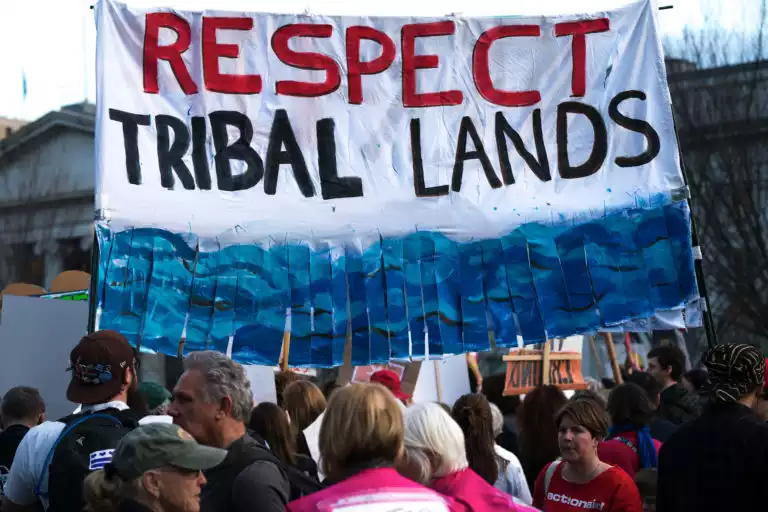
November marks National Native American Heritage Month, also called American Indian and Alaska Native Heritage Month. This month offers an opportunity to explore the history and culture of Indigenous peoples with ties to the land now occupied by the United States. The library aims to integrate topics related to Indigenous peoples into programming throughout the year, and this heritage month serves as a chance to focus our efforts.
The origins of National Native American Heritage Month date back to the early 1900s, when campaigns gained traction to designate a single day honoring the contributions of Indigenous peoples to American history. Advocates from the Congress of the American Indian Association, the Seneca Nation of Indians, the Blackfeet Nation and others fought for state and federal recognition of a day of observance. A handful of states officially established American Indian Day in the 1910s, but it wasn’t until 1990 that the federal government established National Native American Heritage Month. Today, government agencies, schools, libraries, museums, nonprofit organizations and others observe the month annually.
The term “Native Americans” is an imperfect one. It obscures the at least hundreds of sovereign tribal nations that have existed since before European and American colonization on the land now known as the United States. The measures Europeans and Americans used to take Indigenous land and resources were typically exploitative and coercive, and often violent and genocidal. Dominant historical narratives of the transition from Indigenous to settler control have generally minimized these measures and used damaging stereotypes to portray Indigenous peoples—or excluded them from the story entirely. Today, 3.7 million people in the United States identify as Native American or Alaska Native. This includes more than 53,000 people in New Jersey. Three state-recognized tribes for whom New Jersey is an ancestral home continue to live here: the Nanticoke Lenni-Lenape Tribal Nation, Powhatan Renape Nation, and Ramapough Lenape Nation. There are also several federally recognized tribes, displaced and now based elsewhere in North America, for whom present-day New Jersey is an ancestral homeland. These include the Delaware Tribe of Indians, Delaware Nation and Stockbridge-Munsee Community Band of Mohican Indians.
Of course, as is the case with heritage and history-related months in general, National Native American Heritage Month is just one small step in the path toward a more inclusive, accurate and nuanced understanding of American history and present-day society. Designating a month to acknowledge and explore a certain identity (or, as is so often the case, a conglomeration of identities) does not mean we should relax efforts to correct course throughout the rest of the year. Indigenous voices, perspectives and experiences deserve far greater weight and visibility.
In this spirit, the library has created a resource guide to mark National Native American Heritage Month and encourage further learning after the month concludes. The guide highlights educator tools and identifies books and films related to Indigenous history and culture. You’ll also find information on programs at the library and beyond, including an author talk on Nov. 10 featuring Margaret D. Jacobs and Jimmy Sweet (Lakota/Dakota). We hope these offerings spur exploration of Indigenous history and themes this month and throughout the year.
by Madeleine Rosenberg
Photograph by Victoria Pickering via Creative Commons (CC BY-NC-ND 2.0)
